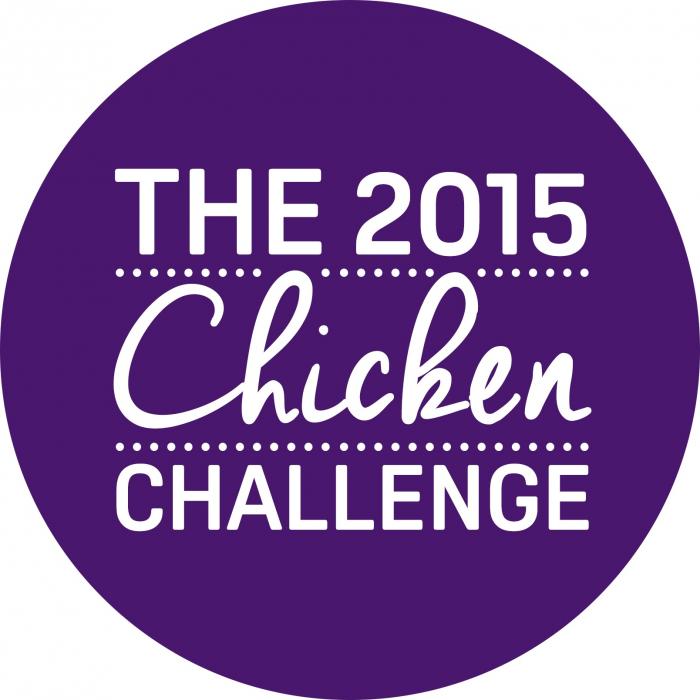Published: 20/05/2015
Join the Chicken Challenge and let’s halve campylobacter food poisoning
Release date: 2015. For immediate release
As part of Food Safety Week, Copeland Borough Council will be putting together an information stand in the foyer of the Copeland Centre and the Millom office this week.
In a recent Food Standards Agency (FSA) poll almost three quarters (73%) of us eat chicken every week in England, Wales and Northern Ireland. And, nearly three quarters (72%) of 16-24 year olds and of all those aged over 25 (52%) agreed that chicken was their favourite meat.
However, The FSA estimate that about 280,000 cases of food poisoning a year can be traced to Campylobacter - a germ found mostly on raw chicken. You can’t see it, smell it or even taste it on food, but if it affects you, you won’t forget it. At its worst, campylobacter can kill or paralyse you.
Campylobacter food poisoning usually develops a few days after eating contaminated food and leads to symptoms that include abdominal pain, severe diarrhoea and, sometimes, vomiting.
Some can have lasting effects for example irritable bowel syndrome, reactive arthritis and, in rare cases, Guillain-Barré syndrome – a serious condition of the nervous system.
The FSA wants to cut the number of cases of campylobacter poisoning in half by the end of 2015. It could mean that over a hundred thousand fewer people would get sick next year. If everyone does their bit including industry and consumers this can happen. Pledging to take the Chicken Challenge and to do at least one thing to help keep our tummies safe and healthy will make a huge difference in helping to achieve this goal.
An information stand providing information will be open on Thursday 21st at The Copeland Centre and Friday 22nd at the Millom office. We will have information leaflets, ATP swabs (provides an instant reading of whether a surface e.g. hands are clean) and a UV cabinet which we use to show inadequate/adequate hand washing practices. A Food Safety officer will also be on hand to provide guidance and advice.
Pat Graham, Director of Economic Growth at Copeland Borough Council, said: “It is really important to understand and be informed about the risks involved in preparing raw meat. This information stand is totally accessible to every member of the public, and can provide all the information they need to be keep themselves and their families healthy and safe, especially as we approach barbeque season.”
The FSA is asking you to step up to the plate and promise to:
-
Bag and store raw chicken separately from other food, covered and chilled on the bottom shelf of the fridge
-
Not to wash raw chicken as it splashes germs
-
Wash everything that’s touched raw chicken in soap and hot water – your hands and utensils
-
Check chicken is cooked properly - no pink meat, steaming hot and the juices run clear
To take the pledge and the chance to win some amazing prizes visit www.food.gov.uk/chickenchallenge
What is campylobacter?
Campylobacter is the generic name for a number of species of bacteria that can cause food poisoning in people. They cause more cases of food poisoning in the UK than salmonella, E. coli and listeria combined.
Campylobacter bacteria are commonly found on poultry meat. Between 50% and 80% of cases of campylobacter food poisoning in the UK and other EU countries can be attributed to poultry sources, mostly to raw poultry meat.[i]
Why it’s important?
50% to 80% of confirmed cases of campylobacter poisoning in the UK come from contaminated poultry. Campylobacter poisoning can lead to sickness including abdominal pain, diarrhoea, disability and even worse. Those most at risk are children and older people.
If you want your chicken meals to be remembered for the right reasons, follow the FSA’s advice on the recommended safe practices when preparing, cooking and storing chicken.
Find out more about the FSA’s Chicken Challenge at www.food.gov.uk/chickenchallenge
For more information on what we are doing for Food Safety week go to http://www.copeland.gov.uk/tags/food-safety
Ends
For more information and to take the pledge: www.food.gov.uk/chickenchallenge
For advice on handling poultry safely see www.food.gov.uk/chicken









